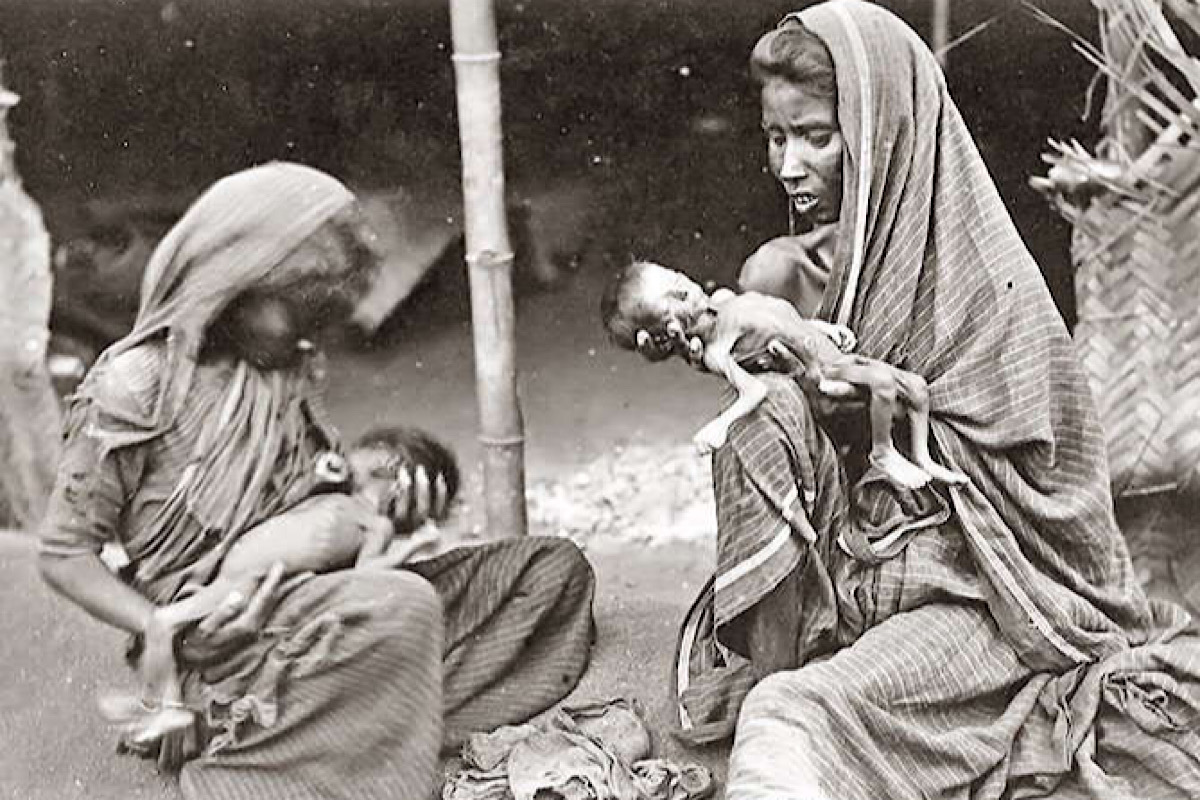RKM spent `1,292 crore on social welfare in 2023-24
The Ramakrishna Mission spent Rs 1,292 crore on social welfare, education, and rural development in 2023-24. The 115th annual general meeting of RKM was held at the Belur Math recently.
It would have been a hot day in Kolkata, as it usually is in August, rain or sunshine. The year was 1943. The date was the 21st. India was still ruled by the British.

(photo:SNS)
It would have been a hot day in Kolkata, as it usually is in August, rain or sunshine. The year was 1943. The date was the 21st. India was still ruled by the British. An editor of a government-owned newspaper and one of the country’s oldest English dailies would have possibly looked out of the spacious glass windows of his stately office and stared into the gold-green palm trees towering beyond the small square just across, deep in dilemma. Should he or should he not go to press with the photographs that he was holding in his hands, defying instructions to the contrary? Or possibly he would have sat at his desk, sipping milk tea just served to him by bearers in white attire, and mulled over what he should do as large ceiling fans whirred overhead. Should he or should he not expose to the world the horrific images that were strewn across the table? Images of famished humans, people from Bengal’s villages and towns, who were little more than still-breathing skeletons, whose hollow, hopeless eyes reflected nothing but death.
Or possibly, as would an editor and a journalist not daunted by intimidation nor deterred by the threat of impending doom of whatever kind, he would have taken less than a split of a second to come to the decision that yes, he would go against the diktats of his government and print the incriminating evidence that not only was a horrific famine raging through Bengal but that it was a “man-made” one.
Advertisement
The editor was Ian Stephens, and the newspaper, The Statesman. The blood-chilling photographs published in the 22 August 1943 edition of The Statesman shook up the world and blew the lid off the blatant lie that then British prime minister Winston Churchill was propagating in order to cover up the flagrant violation of human rights that his government was perpetrating against the people of a land that he was supposed to be ruling.
Churchill’s role in manufacturing the famine by depriving the people of Bengal of their rudimentary ration requirements and diverting food to different parts of the world in order to keep supplies going for his armies as World War II raged is well documented. Tomes have been written on it by historians and others. These books reveal how nearly three million people in Bengal were wiped out by the famine, either having starved to death or died due to malnutrition and diseases related to malnutrition. These also expose Churchill’s unbelievably callous and condescending statements as he scoffed at Indians and held them responsible for the famine, after it became apparent that he could no longer deny it.
Advertisement
Blaming the Bengalis for “breeding like rabbits” and asking rhetorical questions like if there was really a famine and why Gandhi was still alive, Churchill’s inhuman treatment of the people he colonised has been compared to other perpetrators of genocide, including Adolf Hitler.
It was therefore astonishing that the incumbent British prime minister, Rishi Sunak, who happens to be of Indian origin, took to X, formerly Twitter, earlier this week, to praise Churchill and make the preposterous claim that “the world owes him an enormous debt.” Not surprisingly, Sunak’s tweet on 8 May, celebrated as VE, or Victory in Europe Day, when Germany unconditionally surrendered to the Allies, signifying the end of World War II, created a furore with Indians and others from across the globe ripping into what most considered thoughtless comments.
The glass windows on the ground floor of The Statesman’s office still look out to the gold-green palm trees. Sunlight filters in. Interspersed with the sound of intermittent rain. Time has passed—decades. The space within is filled with memories that have mostly faded into oblivion. Except for a few, which have been written in indelible ink. For instance, consider the courage of those like Ian Stephens. As for the fleeting tweet of Mr Sunak, it is like the debris of a heritage building under renovation. It will pass.
BLURB
Rishi Sunak on X: “The world owes an enormous debt to Winston Churchill and the many heroes of defeated Nazism and freed Europe from tyranny. We honour and remember them this VE day and always”.





Advertisement